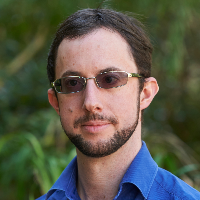Developed in collaboration with industry and taught by experienced decarbonisation professionals, this short course offers comprehensive training for those aiming to specialise in decarbonisation management and energy transition – a rapidly expanding sector.
Teaching you the practical skills for executing and communicating effective solutions for reducing the carbon footprint, participants will explore greenhouse gas measurement and reporting, decarbonisation planning, carbon offset utilisation and understanding the pathways to achieving Net Zero emissions across diverse sectors.

This micro-credential addresses nationwide skill gaps in every industry, ensuring professionals are prepared for the future of decarbonisation.
This microcredential course was developed with the support of the Australian Government's Microcredentials Pilot in Higher Education.
Who is this course for?
This course is tailored for individuals eager to address global decarbonisation goals, address the knowledge gap in achieving these targets by 2030 and Net Zero emissions by 2050.
What you'll learn
You will learn through practical application and case studies how to effectively manage decarbonisation at national, sectoral and entity level using contemporary standards and approaches via three modules:
Greenhouse gas inventory and footprint
- Decarbonisation drivers and greenhouse gas inventory.
- GHG Inventory calculations – Scope 1, Scope 2 and Scope 3.
- Carbon footprint, lifecycle assessment methods, standards, and reporting.
- Lifecycle assessment calculation.
Decarbonsiation strategy development and reporting
- Decarbonisation Standards – Requirements and use.
- Decarbonisation strategy development – Framework and economic analysis.
- Carbon offsets – Generation and use.
- Decarbonisation Strategy – Reporting and Communication.
Sectoral decarbonisation pathways and plans
- Global and National Decarbonisation – Pathways to Net Zero by 2050.
- Sectoral Decarbonisation – Science Based Targets Initiative (SBTI) and Other Sectoral Pathways.
- Decarbonisation Pathways and Strategies for Key Sectors.
- Using Sectoral Pathways to develop Strategic Decarbonisation in Entities.
Where this short course could take you
The global decarbonisation imperative is driving demand for experts. This program equips you with the essential skills to create, implement, and oversee decarbonisation strategies, contributing to a capable workforce for the ongoing transition.
Meet the facilitator
Murdoch University is a hub for sustainable energy and carbon management education and research. Our multidisciplinary Energy Studies Program stands as one of Australia’s most respected and enduring postgraduate programs in Renewable and Sustainable Energy.
Professor Chris Lund is a distinguished nationally recognised leader and practitioner in the decarbonisation field. He has a wealth of practical industry-based experience and a passion for enabling companies and Government entities to become more economically, environmentally, and socially sustainable. He has served as a researcher, consultant and educator, collaborating with diverse entities in the public and private sector including mining, chemical processing, energy, infrastructure and land development.

Entry requirements
Recognised Bachelor's degree (AQF Level 7) in a relevant discipline and at least 2 years (full-time equivalent) graduate work experience.
Relevant disciplines include:
- Agriculture
- Architecture and design
- Business
- Economics
- Engineering
- Environmental Science
- Law
- Management
- Marketing
- Mathematics
- Physical Science
- Policy Studies
- Public Administration
- Sustainable Development
- Sustainability Studies
- Technology
- Urban planning and design
How to apply
To start studying at Murdoch, you can apply directly to Murdoch online via myAdmissions.
For your application to be assessed, it must be complete and submitted on time. Please ensure you have the following information ready before you commence your application.
- Official Academic Transcripts and Certificates of Completion (of your highest academic study)
- Evidence of meeting the minimum English language requirements
- A completed Microcredential Application Form
- Your Unique Student Identifier (USI)
- If your documentation is in a language other than English, you will need to provide a NAATI certified translation. If this will delay your submission, you may like to start the application process by submitting all other documents first and uploading the translations when available.
Applications for Trimester 2 close May 5th 2025
*subsidised government payments are capped at 45 successful applications.